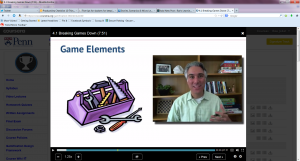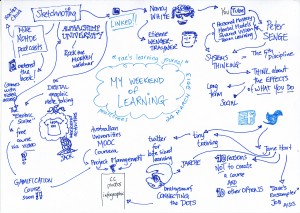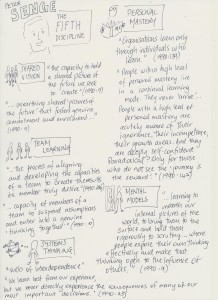Hard to believe that it has been two months since the last time I posted. I have definitely intended to post earlier…..
Since March I have completed at Gamification course with the University of Pennsylvania via coursera.org. According to the site:
Coursera is an education company that partners with the top universities and organizations in the world to offer courses online for anyone to take, for free. Our technology enables our partners to teach millions of students rather than hundreds.
The Gamification course was surprising – I was expecting something fairly straightforward, interesting but not too challenging – it was free after all. But the course involved completing multiple choice quizzes and short assignments – which required staying with the program and really thinking about applying the knowledge gained.
For me, however, the most valuable aspects of the program were in its processes rather than its content.
The content hinged on well designed videos, which I learned were created using Camtasia. The videos integrated video recordings of Professor Kevin Werbach with PowerPoint slides and occasional multi-choice questions to check understanding. As he spoke, Professor Werbach used drawing tools to highlight points on the slides.

Screenshot of a video lecture from Gamification Course featuring Professor Kevin Werbach
These videos were very cleverly developed. Werbach set a challenge in the first video to look for a hidden message, paying particular attention to changes in items on the bookshelves behind him. Even when the puzzle was solved I couldn’t help but notice the items changing in each video I watched.
Other tools used in the course were discussion forums, which were very lively. Over 62,000 people registered for the course, with almost 6,000 successfully achieving a pass mark.
The course offered an option of a “signature Track”. For $39 you could opt for a verification process, so that your certificate with results might hold more credibility as your identity was verified each time you completed a quiz or submitted an assignment. The verification process involved typing the same sentence each time, and a web-cam snapshot. As I completed all work around 1am, I was always rugged up and looking sleepy!
I enrolled in another course via Open2Study – an Australian site similar to Coursera. However, I quickly realised that keeping up with both courses was a challenge, and so I let the second course lapse.
Again, this was a point of learning – that we can assume that because a course is free that it will require little effort – when in fact, this online learning environment truly is a place where what you get out of it really does rely on what you put in.





